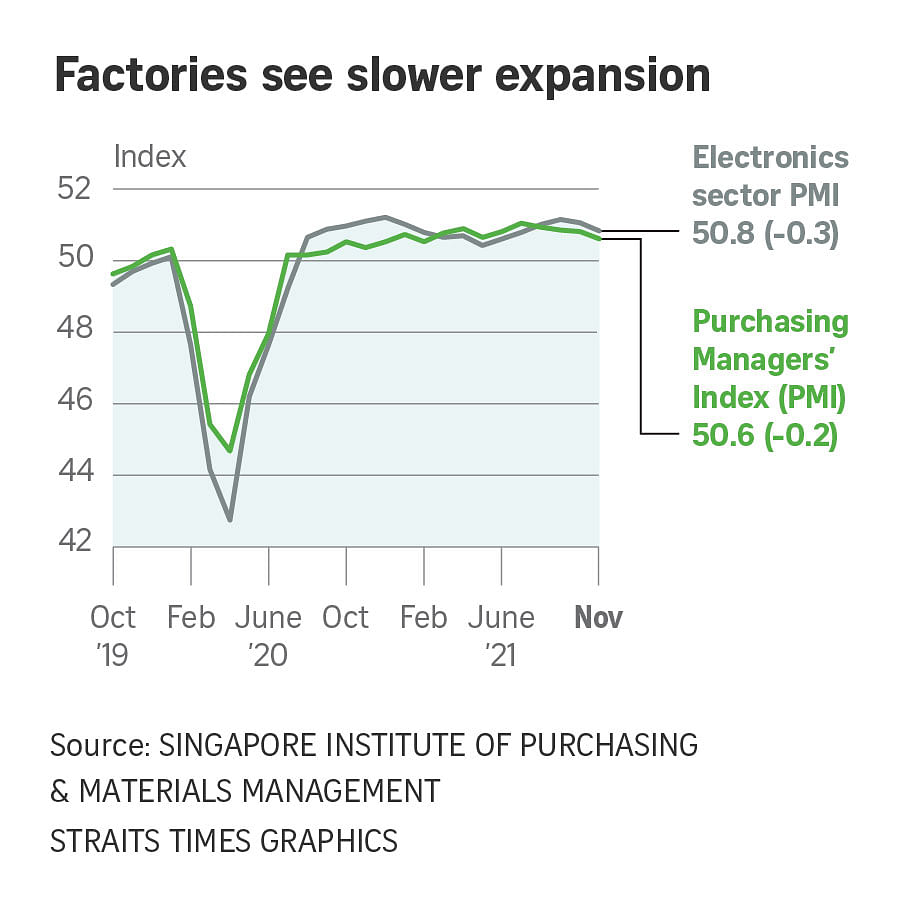Singapore manufacturing activity expands for 17th month but pace of growth dips
Sign up now: Get ST's newsletters delivered to your inbox

The November reading of the Singapore Purchasing Managers' Index was at 50.6, down 0.2 point from October.
PHOTO: ST FILE
SINGAPORE - Manufacturing activity grew for the 17th straight month in November but the pace of expansion was dampened by rising costs, noted data out on Thursday (Dec 2).
Analysts said the new Covid-19 variant Omicron may have already started to hit business sentiment amid fears it may add further pressure on pandemic-disrupted supply chains worldwide.
The November reading of the Singapore Purchasing Managers' Index (PMI) was at 50.6, down 0.2 point from October, said the Singapore Institute of Purchasing and Materials Management (SIPMM).
A reading above 50 indicates growth, while one below 50 represents contraction.
The electronics PMI in November also grew for a 16th straight month, but saw a decrease of 0.3 point from October to 50.8.
Indexes for separate sectors and processes within the manufacturing industry show input prices have been rising steadily for over a year, while order backlogs are mounting on the back of supply constraints, shipping delays and higher freight rates and commodity prices.
Ms Sophia Poh, vice-president for industry engagement and development at SIPMM, said anecdotal evidence suggests that local manufacturers are adapting and coping well with the cost pressures stemming from increasing orders.
"However, the new Omicron variant has raised fears of economic uncertainty, and manufacturers are now concerned about more restrictive measures and disruptive supply chains," she added.
Ms Selena Ling, head of treasury research and strategy at OCBC Bank, said it is still early days to ascertain Omicron's impact and both manufacturing and electronics PMIs are still in expansion territory, but tighter restrictions globally and domestically cannot be taken lightly.
She added that if the new round of lockdowns persists and expands worldwide, supply chain disruptions could worsen, import costs could rise even higher and ultimately hurt prospects of overall economic growth.
"So overall, the rain clouds may be gathering even though it is not clear if it will be a passing shower or thunderstorm," she said.
Singapore's PMI comes on the back of mixed PMI data across Asia.
China's factory activity fell back into contraction last month, the private Caixin/Markit index showed on Dec 1, as soft demand and elevated prices hurt manufacturers.
Beyond China, however, factory activity seemed to be on the mend, with PMIs showing expansion in countries including Japan, South Korea, India, Vietnam and the Philippines.



